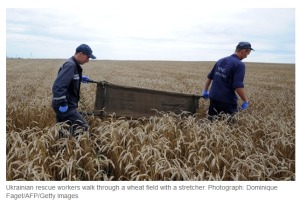When they planted wheat they had hopes for grains
Once I saw a lady fainting on a hot day and did nothing to help her. While others landed a hand I still processed the act of fainting and tried to shake it off as if it were some kind of phobic encounter and not a situation in which I could intervene. I certainly wasn’t the hero that day, other people were. But they didn’t look like it. Nobody wore a cape.
We look up to heroes but the heroes themselves often don’t feel all that heroic. We vilify those who, by profession or chance, commit acts we deem heinous. But that is just one side of the coin. Because in the midst of the action everything is quite surreal: the protagonist does not see himself as a liberating hero or an oppressor. In fact it is highly likely that he or she barely distinguishes if the side they are on is the good or the bad. Nowhere is the present more present than during a bewildering event. That is one of the reasons why I distrust any kind of presentation involving a complicated string-pulley for a life-jacket on a high altitude aeroplane. It looks as if it could save your life. It probably wouldn’t.
I wonder how many people feel the same about the instantaneous ability (or lack thereof) of saving one’s life, perhaps one’s own life. Will it work? What will others do? As of late, thinking and acting fast looks more and more like a compulsory skill instead of an empathy exercise. The world swirls out of control from one day to the next and sometimes even from one hour to the next. There is little time for simple things. Routine is more of a luxury than a bore.
“planting wheat one week before to one week after the first frost is generally an ideal time for wheat planting due to ideal soil temperatures that favour rapid emergence.”
Think of the land, of agriculture, of planting and harvesting. The MFA[1] website states that “planting wheat one week before to one week after the first frost is generally an ideal time for wheat planting due to ideal soil temperatures that favour rapid emergence.”
Once the seeds are planted the wait begins. Harvesting only happens in fall.
But the rule of the land and the rule of man have very little in common these days. It used to be that farmers hoped for rain, nowadays they hope for peace. Because between planting and harvesting there are things to worry about that have nothing to do with nature and very much to do with other men.
I am not a farmer but with the little knowledge that I do have, I strongly believe the farmers of Eastern Ukraine planted their crops in hopes of harvesting their grain. And, like all good farmers, they too hoped for rain. But the rain of lead they received instead was probably different than what they had expected. Then the lead got bigger. Then it turned into men. It is nothing short of surreal to hope for grain and harvest tragedy instead.
“these are the stakes: to make a world in which all of God’s children can live or to go into the darkness.” (Lyndon Johnson, 1964)
In July 1964, president Lyndon Johnson’s campaign aired “the Daisy Ad”. In it, a little girl counting the ripped petals of a daisy, then a countdown, then a nuclear blast. It stated “these are the stakes: to make a world in which all of God’s children can live or to go into the darkness.” The president’s line echoed W.H. Auden’s poem (entitled “September 1, 1939): “we must either love each other or we must die”. It seems half a century later we are very much in the same place.
©milena, 2014.
[1] Made for Agriculture: http://www.mfa-inc.com


Leave a comment